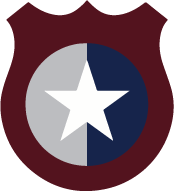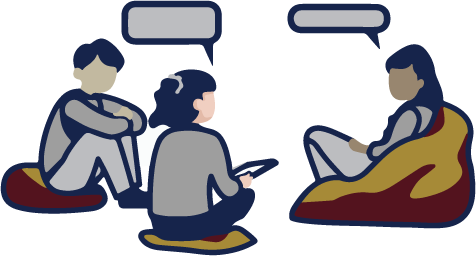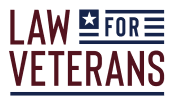FMLA: Military Caregiver Leave
How does Military Family Leave help my family?
There are two types of FMLA leave specifically designed to support military families:
1. Military Caregiver Leave
2. Qualifying Exigency Leave
Who can use the Military Family Leave?
To be eligible for Military Family Leave, the caregiver needs to work for a covered employer. Employers with at least 50 employees are , unless they are:
- Government agencies including local, state, and federal employees; and
- Public and private elementary, middle, and high school employees.
Those that work for a covered employer must also:
- Have worked at the same place for at least 12 months,
- Have worked at least 1,250 hours in the 12 months before taking leave (approximately 27 hours a week), and
- Worked at a place where the employer has at least 50 employees within 75 miles.
The 12 months of employment do not have to be in a row.
Example: The employee worked as a teacher from August to May, meeting their 1,250-hour commitment.
If the employee stopped working for more than 7 years, then their previous work history is not factored in. Unless the break was because of service covered by the Uniformed Services Employment and Reemployment Rights Act (USERRA).

What is Military Caregiver Leave?
For family members who care for an injured or seriously ill veteran, FMLA has protections for caregivers who must take a leave of absence from their job.
Once someone is approved to be a caregiver for a service member, they are allowed to take up to 26 weeks of unpaid leave during a single 12-month period.
Who is considered a covered service member?

Those currently serving in the Armed Forces, including the National Guard and Reserves, and who are experiencing the following are
- Undergoing medical treatment, recuperation, or therapy,
- Has outpatient status, or
- Is on the temporary disability retired list due to a serious injury or illness.
What is considered a serious injury or illness for current service members?
When a service member has an illness or injury that makes them medically unable to do the duties of their office, grade, rank, or rating it is considered a serious injury or illness.
An injury or an illness that existed before the service member’s active duty and that has become worse during service is also considered a serious injury or illness.

Are veterans considered covered service members?
Veterans who were discharged with anything other than dishonorable and who served within 5 years of applying for Military Caregiver Leave are .
What is considered a serious injury or illness for covered veterans?

- Forced the veteran to be unable to perform the duties of the veteran’s office grade, rank, or rating; or
- A physical or mental condition where the veteran has received a (VASRD) of 50% or greater (the rating may be based on multiple conditions); or
- A physical or mental condition that has severely changed the veteran’s ability to work due to their disability or disabilities related to military service, or would do so if treatment is not applied; or
- An injury where the veteran enrolled in the Department of Veterans Affairs
Who is eligible to be a caregiver under Military Family Leave?
To be eligible for, the caregiver(s) must be a spouse, parent, child, or relative (“next of kin”) of the covered service member.
A parent is considered as the service member’s biological, adoptive, step or foster parent or any person who stood in Loco Parentis. A parent “in law” is not included under this term.

What does In Loco Parentis mean?
A person stands in when they are not a parent of the child but take care of the child like a parent. In loco parentis, biological parents do not lose their right to custody of the child. For FMLA, a person does not have to be related to a child to stand or have stood in loco parentis.

For example, an aunt who raised her niece may exercise her FMLA rights to take military caregiver leave if the niece is a covered service member. A different example may be if the service member’s biological parent co-parented with a same-sex partner, the co-parent may take military caregiver leave.
What does a “single 12-month period” mean?
Caregivers who are approved for Military Caregiver Leave have to care for the covered service member or veteran with a serious injury or illness. The 12-months begin the first day the caregiver takes leave and ends after 12 months. Their employer does not get to decide when the 12-months begins or ends.
Caregivers are given 26 weeks of leave for any FMLA reason during the single 12-month period.
Up to 12 of the 26 weeks may be used for another FMLA reason that does not involve the service member. For example, a caregiver could use 10 weeks of FMLA leave for a pregnancy, leaving 16 weeks of FMLA leave to care for a service member.

Can Military Caregiver Leave be taken multiple times?
Caregivers may take 26 weeks of Military Caregiver Leave in a 12-month period more than once, if more than one of the following apply:
- They care for a covered service member’s serious injury or illness,
- When the same service member becomes a veteran, if they are still having problems with the same injury or illness,
- If the same service member has a different serious injury or illness from a single incident, and/or
- The caregiver takes care of more than one service member at a time.

For example, someone who takes Military Caregiver Leave to take care of a service member who broke their leg, may be entitled to an additional 26 weeks of caregiver leave in a different 12-month period if the service member is later diagnosed with Post-Traumatic Stress Disorder (PTSD) from the same incident as the broken leg.
What does the caregiver have to provide to their employer?
An employer may ask the employee requesting Military Caregiver Leave to certification, signed by a doctor. The form requires:
The caregiver to provide an (ITO) or an (ITA) issued to them for certification for the time specified on the ITO/ITA.

Other common documents for certification are a copy of the determination or the enrollment notice from the VA’s .

The Department of Defense, Veterans Affairs, , non-network TRICARE, or non-military-affiliated healthcare provider may be an authorized healthcare provider. An employer may request an additional opinion of a covered service member’s serious injury or illness, but only when certification was provided by a non-military-affiliated healthcare provider.
How is FMLA Military Caregiver Leave requested from my employer?
- Notify the employer as soon as possible (preferably 30 days in advance).
- The employer has 5 business days to tell the employee if they are eligible for FMLA.
- The employer provides the employee with FMLA rights and responsibilities and may request certification documentation.
- With at least 15 days before leave starts, give a written, informational, statement to the employer to certify the need for leave.
- Employer will notify the covered employee whether leave has been designated as FMLA within 5 business days.
It is important to also understand the general leave policy of the employer. There are instances where the employee must comply to both the FMLA regulations and the employer’s leave policy.
Will I continue to get paid under Military Caregiver Leave?

FMLA leave is unpaid. However, employees sick time, vacation time, or personal time saved up so that they may continue to get paid. It may be possible that an employee does not want to use any of their accumulated paid time-off hours/days, but their employer may require them to use it during FMLA leave.
Will I lose my employer health insurance while I am on Military Caregiver Leave?
The employer of employees on FMLA as if they had never left. Employees may be required to continue to make any normal employee contributions while on Military Caregiver Leave.

What happens when I return from Military Caregiver Leave?
When an employee returns from leave they are , or one that is closely similar. If a new position is assigned, the new position needs to: Involve similar duties, responsibilities, and status,
- Include the same general level of skill, effort, responsibility, and authority,
- Provide identical pay, including identical premium pay, overtime, and bonus opportunities,
- Offer the same general work schedule, and
- Be at the same or nearby location.
The employer does not have to hold an employee’s job if they do not return to their job before their FMLA leave expires.
My employer is not letting me take FMLA, even though I qualify. How do I file a complaint?
FMLA is administered and enforced by the (WHD).

interfere with, hold, or deny FMLA rights. Employers cannot retaliate against an employee for filing a complaint or for working with the WHD or bringing a private action to court. Immediately contact the WHD if an employer retaliated against an employee.
If rights have been violated, contact WHD at 1-866-487-9243 or visit their
The information below is useful for filing a complaint:
- Your name,
- Your address and phone number,
- The name of the company you work/worked at,
- Location of the company (may be different from the actual job site),
- Phone number of the company,
- Manager or owner’s name, and
- The circumstance of the FMLA request and the employer’s response.
